Uganda, or the ‘Pearl of Africa’, as it was famously dubbed by Winston Churchill, is characterised by relatively dry and flat savanna in the north, with verdant mountains in the West, and vast dense and remarkably lush forests in the central region. The nation is home to an astonishingly diverse range of African wildlife including the highly endangered mountain gorilla which can be found in the Bwindi Impenetrable Forest. A popular spot for wildlife watching is Queen Elizabeth National Park, which hosts four of the Big Five, a flock of flamboyant flamingos and the rare tree-climbing lions of Ishasha. Outdoor enthusiasts can get their adrenaline fix with plenty of whitewater rafting, kayaking, hiking, quad biking and horse riding facilities on offer. Add to this some friendly locals, a burgeoning cultural scene, and a capital city full of lively bars, clubs and restaurants, and it is easy to see why Uganda has gained itself a reputation as 'Africa's friendliest country'.
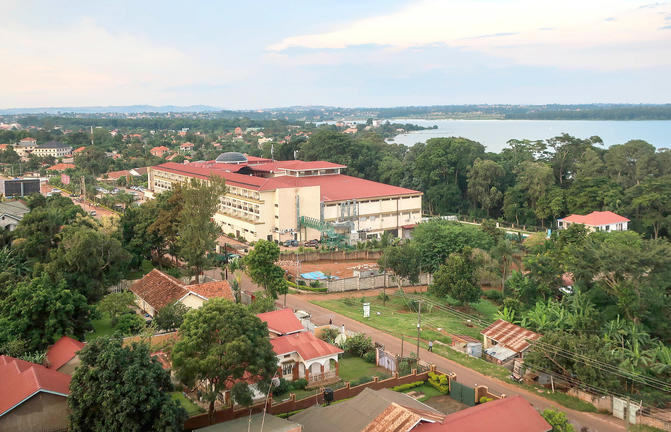
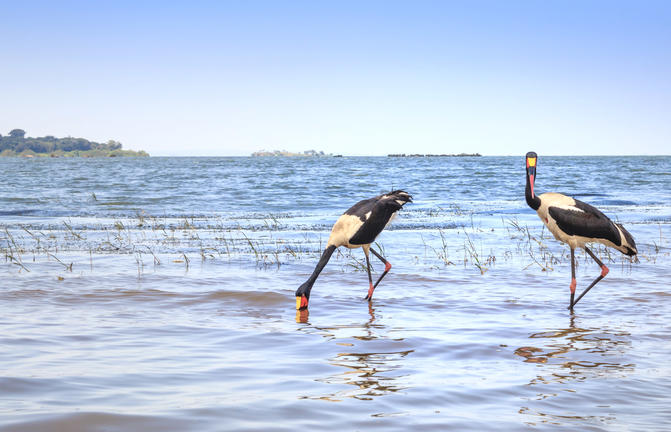
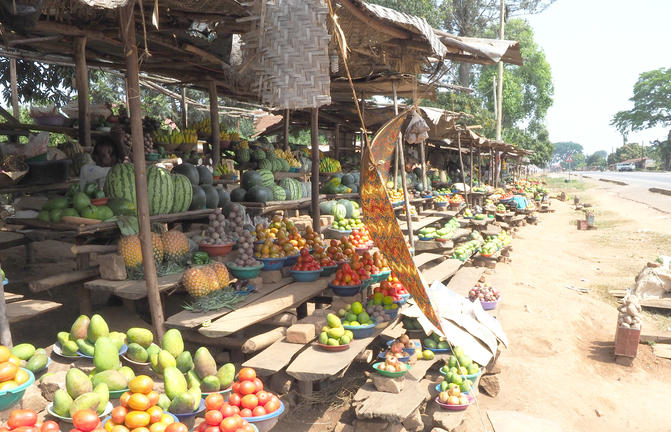

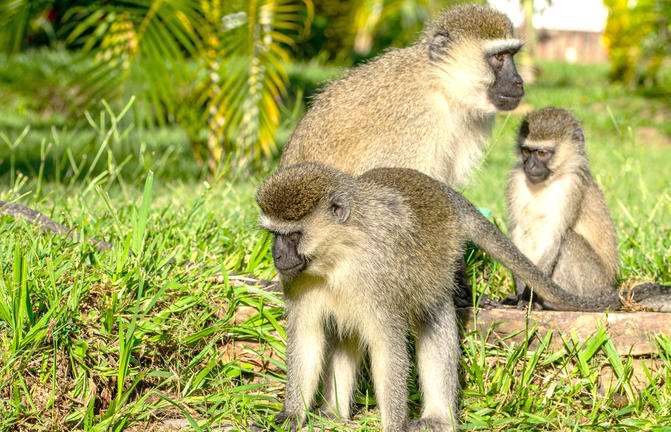
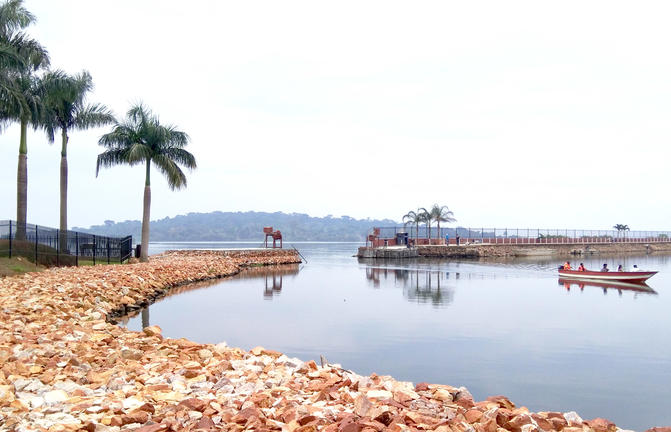
Located on the shores of Lake Victoria, Entebbe lies 40 km south of Kampala, Uganda's bustling capital. As the country’s primary gateway, it serves as both a peaceful retreat and a starting point for exploring Uganda's natural wonders. The city sits in a lush landscape, with sprawling green spaces and a shoreline dotted with fishing villages. The Entebbe Botanical Gardens, established in 1898, showcase a wide variety of plant species, from indigenous tropical forest to cultivated horticultural displays. The gardens are home to a diverse bird population, including the palm nut vulture and giant kingfisher, and provide a haven for primates like the black-and-white colobus. A short trip west leads to the Mabamba Swamp, a Ramsar Wetland, where visitors can explore by dugout canoe in search of the rare shoebill stork. Lake Victoria itself invites fishing, leisurely cruises, and excursions to Ngamba Island, a sanctuary for orphaned chimpanzees, where visitors can observe the chimps roaming freely across 40 hectares of forested land.
Located in southwestern Uganda, the Bwindi Impenetrable National Park is said to be Africa’s oldest rainforest. It is world-renowned for its excellent gorilla-sighting opportunities - the forest is home to half of the remaining mountain gorillas on earth. This gorilla experience takes place among a rugged landscape of dense jungle, cascading waterfalls, sparkling mountain streams, deep valleys, and steep ridges. The untouched forest has been declared a UNESCO World Heritage Site for its breathtaking natural beauty and unique ecological significance. Aside from the amazing gorilla interactions, there are other drawcards such as a network of forest walks, over 340 species of bird to spot, and a variety of brightly-coloured butterflies to identify.












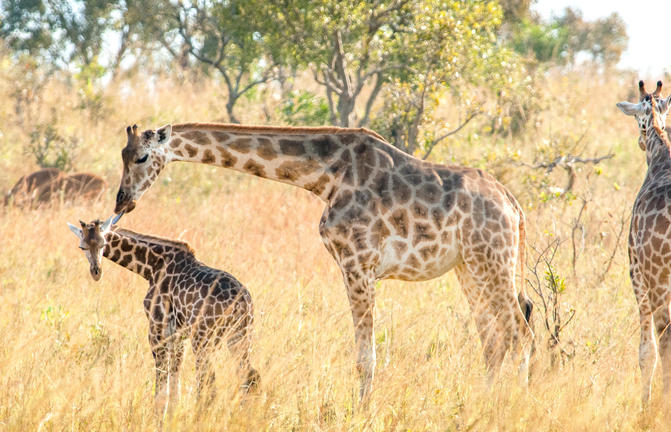
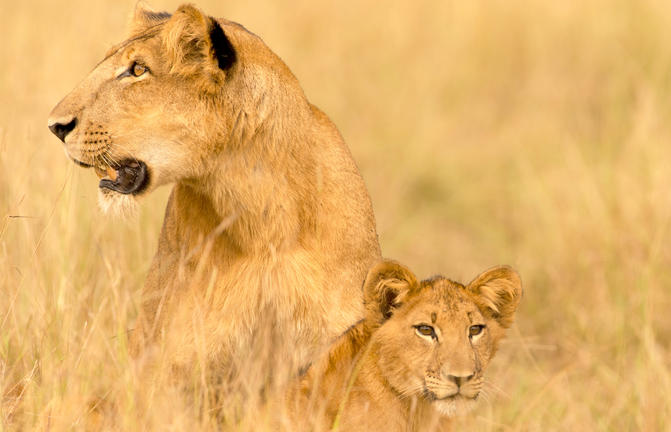

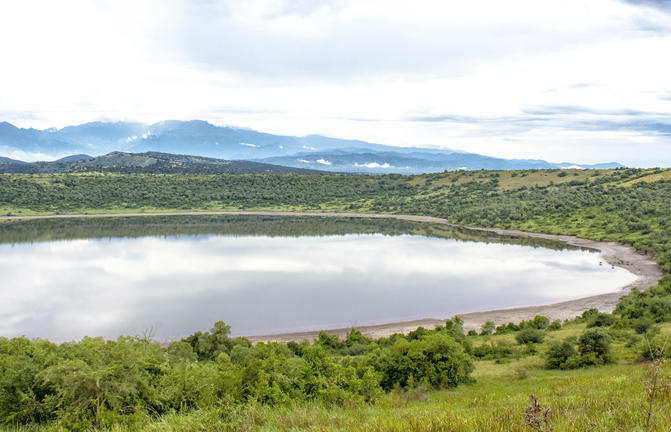
Surrounded by other wonderful parks in the western region of Uganda, the Queen Elizabeth National Park is known for its rich biodiversity, wildlife and history. In the southern part of the park, the remote Ishaha sector is home to tree-climbing lions who spend long lazy days dozing in the pretty fig trees. The Uganda Kob, a type of antelope, are watched carefully by the tree lions while grazing the plains Around Lake Edward, enjoy fishing and more game watching - make sure to look out for chimpanzees, elephants, crocodiles, and perennial and migratory bird species.
One of the most popular parks in Uganda, the Queen Elizabeth National Park lies in the western region of the country. In the northern part of the park, visitors can look forward to boating along the Kasinga Channel, which is home to the largest population of hippos in the world and an abundance of Nile crocodiles. Along the banks, an incredible number of birds and wild animals flock to the river’s edge. At Kyambura Gorge, fondly known as ‘Valley of the Apes’, chimpanzees are at home in a world of lush tropical rainforest spread with canopies, and three salty crater lakes are decorated with swathes of pink flamingos. On the western shore of Lake George, the vast Kasenyi Plains are inhabited by lions and several interesting bird species.






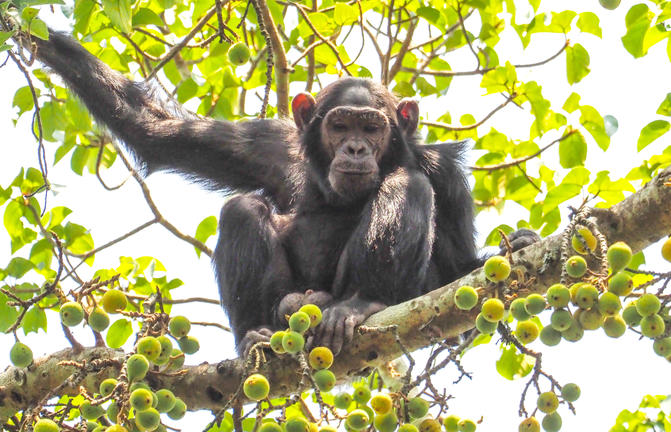


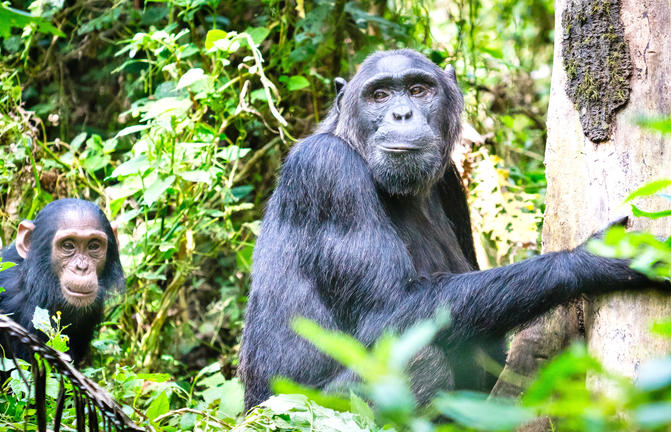
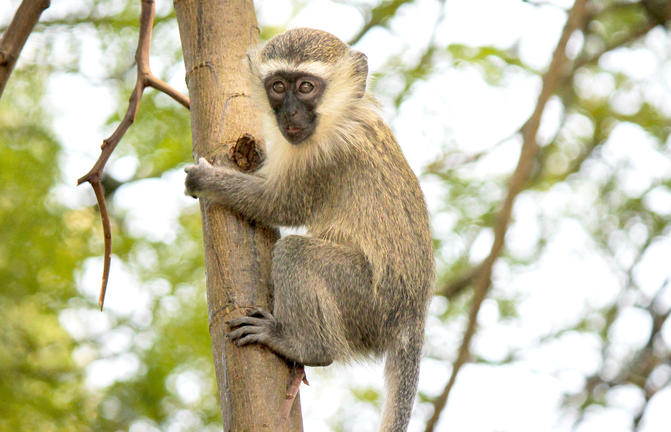
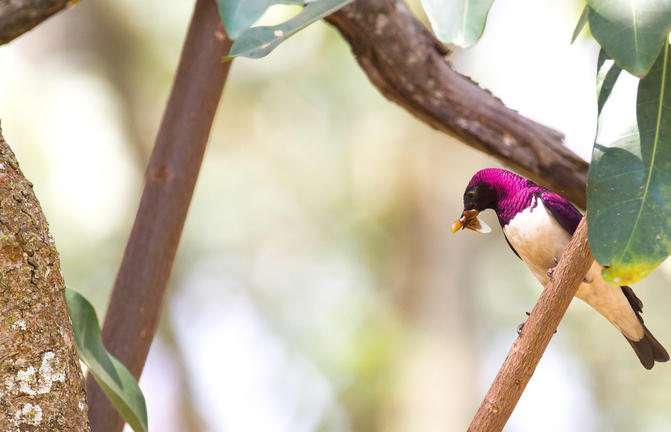
Kibale Forest National Park, situated in Western Uganda, is famous for its high density of primates, breathtaking crater lakes, and thick, beautiful jungle. Thirteen primate species inhabit the beautiful tropical forest, including red-tailed monkey, L’Hoest's monkey, grey-cheeked mangabey, red colobus, and black and white colobus monkeys. Visitors may spot some of the 300 bird species and 250 butterfly species, and buffalo, forest elephants, leopards, bushbucks, and sitatungas also live in the park but are generally shy. The area is decorated by around 50 enthralling crater lakes and numerous pristine hiking trails. Several cultural tours are on offer which delve into the rich traditions of the Batoro people, giving travellers a chance to see Batoro dancing, singing and traditional healing up close.